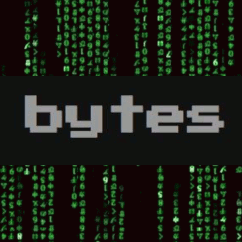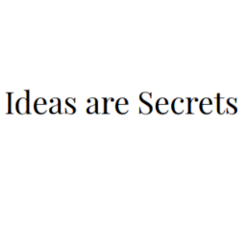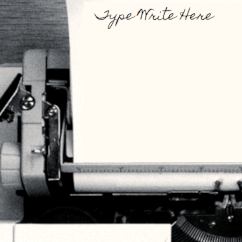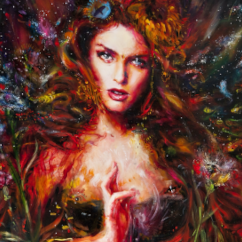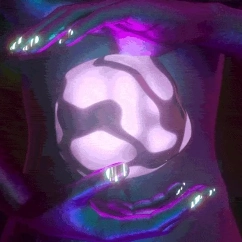The Creative's Code
03 Sep 2021 -
These rules, principles, affirmations, beliefs and exercises are all taken directly from chapters of Julia Cameron’s The Artist’s Way and condensed here in one page.
”
Basic Principles
1. Creativity is the natural order of life. Life is energy: pure creative energy.
2. There is an underlying, in-dwelling creative force infusing all of life --including ourselves.
3. When we open ourselves to our creativity, we open ourselves to the creator's creativity within us and our lives.
4. We are, ourselves, creations. And we, in turn, are meant to continue creativity by being creative ourselves.
5. Creativity is God's gift to us. Using our creativity is our gift back to God.
6. The refusal to be creative is self-will and is counter to our true nature.
7. When we open ourselves to exploring our creativity, we open ourselves to God: good orderly direction.
8. As we open our creative channel to the creator, many gentle but powerful changes are to be expected.
9. It is safe to open ourselves up to greater and greater creativity.
Creative Affirmations List:
1. I am a channel for God's creativity, and my work comes to good.
2. My dreams come from God and God has the power to accomplish them.
3. As I create and listen, I will be led.
4. Creativity is the creator's will for me.
5. My creativity heals myself and others.
6. I am allowed to nurture my artist.
7. Through the use of a few simple tools, my creativity will flourish.
8. Through the use of my creativity, I serve God.
9. My creativity always leads me to truth and love.
10. My creativity leads me to forgiveness and self-forgiveness.
11. There is a divine plan of goodness for me.
12. There is a a divine plan of goodness for my work.
13. As I listen to the creator within, I am led.
14. As I listen to my creativity I am led to my creator.
15. I am willing to create.
16. I am willing to let myself create.
17. I am willing to let God create through me.
18. I am willing to be of service through my creativity.
19. I am willing to experience my creative energy.
20. I am willing to use my creative talents.
Rules of the Road
In order to be an artist, I must:
1. Show up at the page. Use the page to rest, to dream, to try.
2. Fill the well by caring for my artist.
3. Set small and gentle goals and meet them.
4. Pray for guidance, courage, and humility.
5. Remember it is far harder and more painful to be a blocked artist than it is to do the work.
6. Be alert, always, for the presence of the Great Creator leading and helping my artist.
7. Choose companions who encourage me to do the work, not just talk about doing the work or why I am not doing the work.
8. Remember that the Great Creator loves creativity.
9. Remember that it is my job to do the work, not judge the work.
10. Place this sign in my workplace: Great Creator, I will take care of the quantity.
You take care of the quality.
Beliefs + Alternatives
artists are
drunk - sober
crazy - sane
broke - solvent
irresponsible - responsible
loners - user-friendly
promiscuous - faithful
doomed - saved
unhappy - happy
born, not made - discovered and recovered
Rules to Criticism
1. Receive the criticism all the way through and get it over with.
2. Jot down notes to yourself on what concepts or phrases bother you.
3. Jot down notes on what concepts or phrases seem useful.
4. Do something very nurturing for yourself on what concepts or phrases bother you.
5. Remember that even if you have made a truly rotten piece of art, it may be a necessary stepping-stone to your next work. Art matures spasmodically and requires ugly-duckling growth stages.
6. Look at the criticism again. Does it remind you of any criticism from your past--particularly shaming childhood criticism? Acknowledge to yourself that the current criticism is triggering grief over a long-standing wound.
7. Write a letter to the critic--not to be mailed, most probably. Defend your work and acknowledge what was helpful, if anything, in the criticism proffered.
8. Get back on the horse. Make an immediate commitment to do something creative.
9. Do it. Creativity is the only cure for criticism.
Restoring Abandoned Persons Exercise
You may feel strong emotion as you retrieve memories and misplaced fragments of yourself. Allow yourself to free-associate for a sentence or so with each phrase.
1. My favorite childhood toy was__
2. My favorite childhood game was__
3. The best movie I ever saw as a kid was__
4. I don't do it much but I enjoy__
5. If I could lighten up a little, I'd let myself__
6. If it weren't too late, I'd__
7. My favorite musical instrument is__
8. The amount of money I spend on treating myself for entertainment each month is__
9. If I weren't so stingy with my artist, I'd buy him her__
10. Taking time out for myself is__
11. I am afraid that if I start dreaming
12. I secretly enjoy reading__
13. If I had a perfect childhood I'd have grown up to be__
14. If it didn't sound so crazy, I'd write or make a__
15. My parents think artists are__
16. My God thinks artists are__
17. What makes me feel weird about this recovery is__
18. Learning to trust myself is probably__
19. My most cheer-me-up music is__
20. My favorite way to dress is__
Money Exercise:
Complete the following phrases.
1. People with money are__
2. Money makes people__
3. I'd have more money if__
4. My dad thought money was__
5. My mom always thought money would__
6. In my family, money caused__
7. Money equals__
8. If I had money, I'd__
9. If I could afford it, I'd__
10. If I had some money, I'd__
11. I'm afraid that if I had money I would__
12. Money is__
13. Money causes__
14. Having money is not__
15. In order to have more money, I'd need to__
16. When I have money, I usually__
17. I think money__
18. If I weren't so cheap I'd__
19. People think money__
20. Being broke tells me__
Jealousy Map
Three columns, who jealous of, why, action you can take to move toward creative risk and out of jealousy.
- WHO - WHY - ACTION ANTIDOTE
Archeology Exercise
Tell you what you can be doing, now, to comfort and encourage your artist child, it is not too late no matter what your ego tells you.
1. As a kid, I missed the chance to__
2. As a kid, I lacked__
3. As a kid, I could have used__
4. As a kid, I dreamed of being__
5. As a kid, I wanted a__
6. In my house, we never had enough__
7. As a kid, I needed more__
8. I am sorry that I will never again see__
9. For years, I have missed and wondered about__
10. I beat myself up about the loss of__
Positive inventory to build on. Finish these phrases.
1. I have a loyal friend in__
2. One thing I like about my town is__
3. I think I have a nice__
4. Writing my morning pages has shown me I can__
5. I am taking a greater interest in__
6. I believe I am getting better at__
7. My artist has started to pay more attention to__
8. My self-care is__
9. I feel more__
10. Possibly, my creativity is__
Mantra:
Treating myself like a precious object will make me strong.
Early Patternings Exercise
- Write about whatever these trigger for you.
1. As a kid, my dad thought art was __
That made me feel __
2. I remember one time when he __
3. I felt very __ and __ about that. I never forgot it.
4. As a kid, my mother taught me taht my daydreaming was __
5. I remember she'd tell me to snap out of it by reminding me __
6. The person I remember who believed in me was __
7. I remember one time when __
8. I felt __ and __ about that. I never forgot it.
9. The thing that ruined my chance to be an artist was __
10. The negative lesson I got from that, which wasn't logical but I still believe, is that I can't ___
and be an artist.
11. When I was little, I learned that ___
and ___
were big sins that I particularly had to look out for.
12. I grew up thinking that artists were ___ people.
13. The teacher who shipwrecked my confidence was __
14. I was told __
15. I believed this teacher because __
16. The mentor who gave me a good role model was __
17. When people say I have talent I think they want to __
18. The thing is, I am suspicious that __
19. I just can't believe that __
20. If I believe that I am really talented, then I am mad as hell at
__
and
__
and
__
and
__
and
__
and
__
Affirmations
I am a talented person.
I have a right to be an artist.
I am a good person and a good artist.
I now treat myself and my creativity more gently.
I now treat myself and my creativity more generously.
I now share my creativity more openly.
I now accept hope.
I now act affirmatively.
I now accept creative recovery.
I now allow myself to heal.
I now accept God's help unfolding my life.
I now believe God loves artists.
Goal Search:
Difficult, do it anyway, if multiple dreams, do the exercise for each, think of as preliminary architect’s drawing for the life you wish you have.
1. Name your dream. "In a perfect world, I would secretly love to be a __"
2. Name one concrete goal that signals to you its accomplishment. On your emotional compass.
this goal signifies true north.
3. In a perfect world, where would you like to be in five years in relation to your dream and true north?
4. In the world we inhabit now, what action can you take, this year, to move you closer?
5. What action can you take this month? This week? This day? Right now?
6. List your dream (Famous film director?). List its true north (respect and higher consciousness, mass communication.)
Select a role model (Walt Disney). Make an action plan. Five years. Three years. One year. One month. One week. Now.
Choose an action. __reading this book is an action.
Block Exercise
In order to work freely on a project, an artist must be at least functionally free of resentment (anger) and resistance (fear). That means that any buried barriers must be aired before the work can proceed. The same holds true for any buried payoffs to not working. Blocks are seldom mysterious. They are, instead, recognizable artistic defenses against what is perceived (rightly or wrongly) as a hostile environment.
Remember, your artist is a creative child. It sulks, throws tantrums, holds grudges, it is afraid of the dark, the bogeyman, and any adventure that isn’t safely scary. As your artist’s parent and guardian, its big brother, warrior, and companion, it falls to you to convince your artist it is safe to come out and (work) play.
Questions asked when work becomes difficult or bogs down, usually act to clear the obstructed flow.
1. List any resentments (anger) you have in connection with this project.
It does not matter how petty, picky, or irrational these resentments may appear to your adult self. To your artist child they are real big deals: grudges.
[Some examples: I resent being the second artist asked, not the first. (I am too the best.) I resent the editor, she just nitpicks. She never says anything nice. I resent doing work for this idiot, he never pays me on time.]
2. Ask your artist to list any and all fears about the projected piece of work and/or anyone connected to it. Again, these fears can be as dumb as any two year-old's. It does not matter that they are groundless to your adult's eye. What matters is that they are big scary monsters to your artist.
[Some examples: I'm afraid the work will be rotten and I won't know it... I'm afraid the work will be good and they won't know it.. I'm afraid all my ideas
are hackneyed and outdated... I'm afraid my ideas are ahead of their time...I'm afraid I'll starve...I'm afraid I'll never finish...I'm afraid I'll never start...I'm afraid I will be embarrassed (I'm already embarrassed)...]
3. Ask your self if that is all. Have you left out any itsy fear? Have you suppressed any "stupid" anger? Get it onto the page.
4. Ask yourself what you stand to gain by not doing this piece of work.
[Some examples: If I don't write the piece, no one can hate it...If I don't write the piece, my jerk editor will worry...If I don't paint, sculpt,
act, dance, sing, I can criticize others, knowing I could do better.]
5. Make your deal. The deal is, "Okay, Creative Force, you take care of the quality, I'll take care of the quantity." Sign your deal and post it.
Name Your goal: I am _____ In the present tense, describe yourself doing it at the height of your powers! This is your ideal scene. Read this aloud to yourself. Post this above your work area. Read this aloud, daily!
”











































































































































































